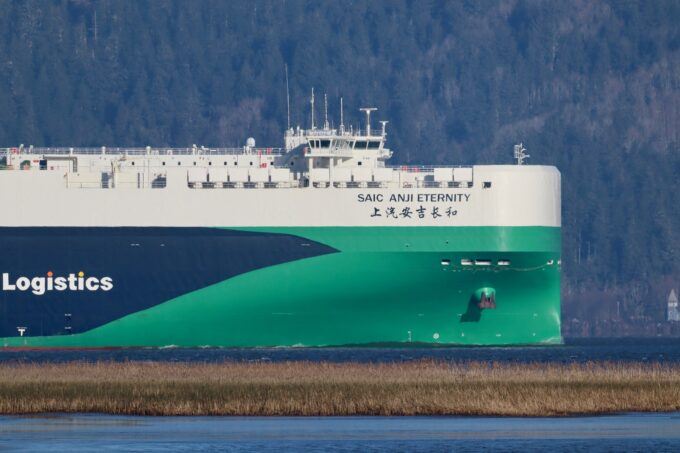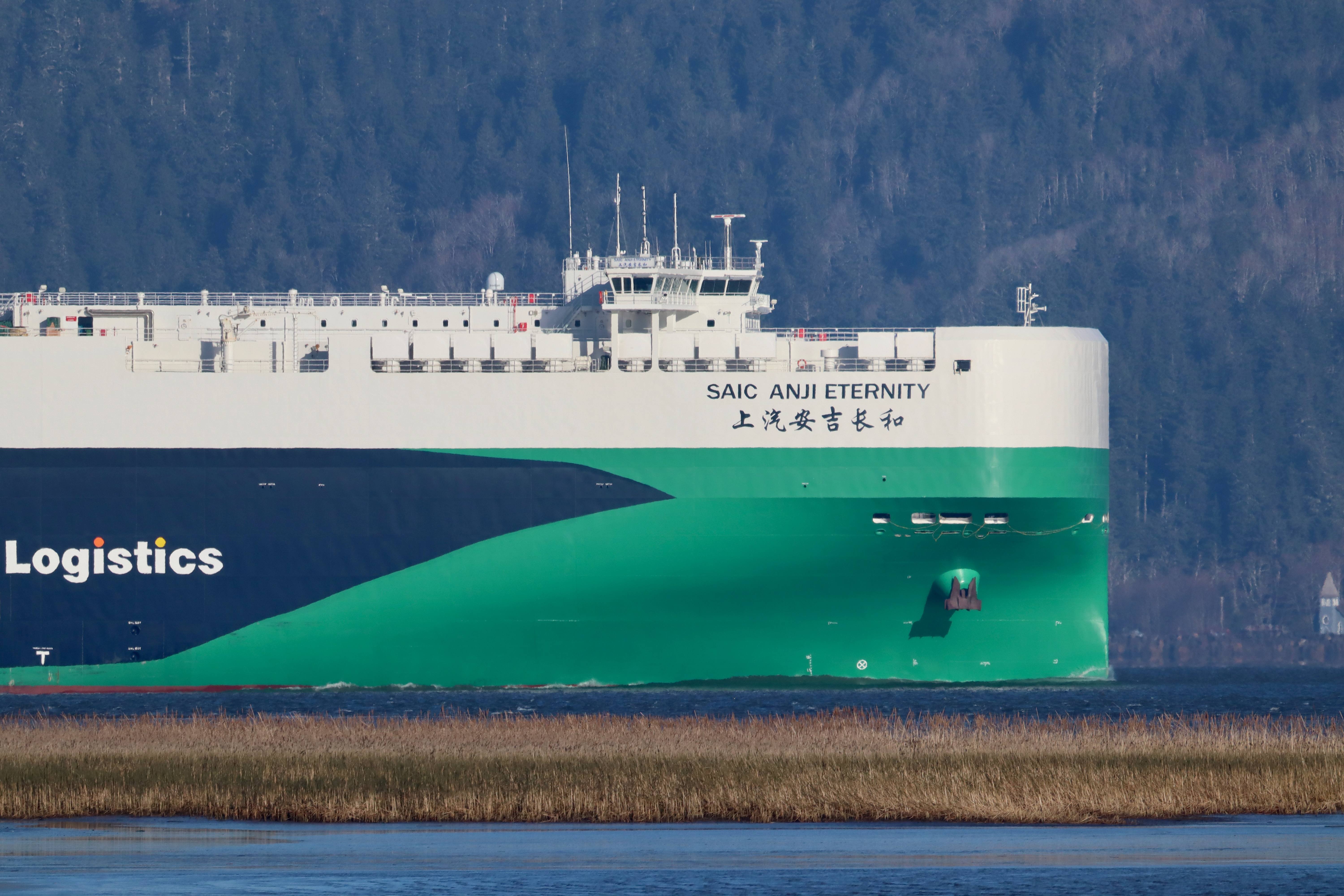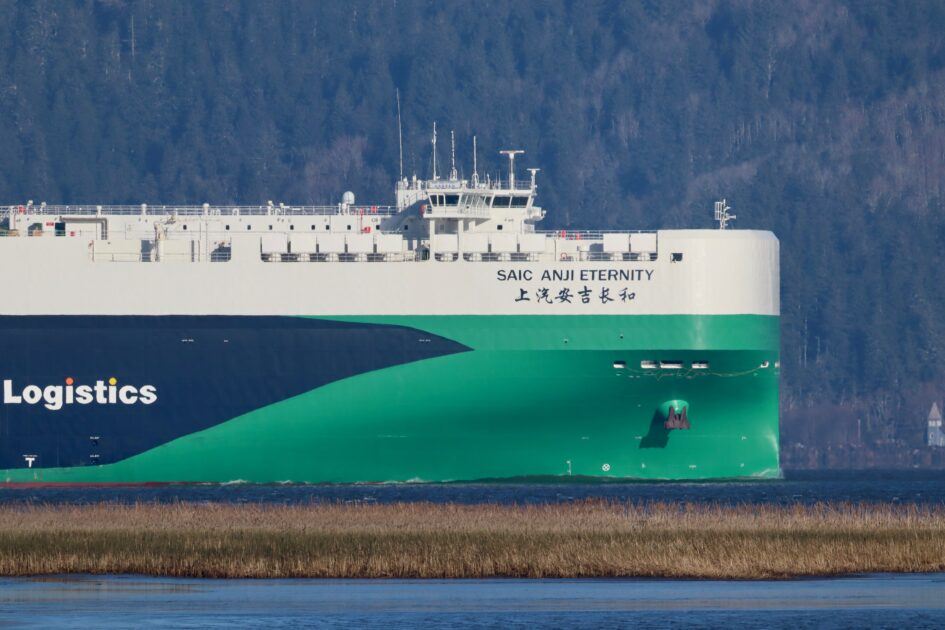


































































Cargo ship entering the Columbia River from the Pacific. Photo: Jeffrey St. Clair.
As the Trump Administration continues to push ineffective tariff policies and ignite trade wars, America’s working families hang in the balance — caught between rising prices and a weakening job market, and worrying about what comes next.
It’s tempting to blame tariffs alone for the larger chaos of Trump’s mismanaged economy. But that critique ignores the fact that working families and communities throughout the United States have been harmed by decades of damaging trade agreements designed to protect corporate interests.
Now more than ever, pro-worker advocates have a critical role in showing how progressive fair trade policies — including strategic, targeted tariffs — can build a better future for workers and communities. Here are six points of broad agreement among progressive, pro-worker advocates:
The status quo is not acceptable.
Corporate-dominated trade agreements like the North American Free Trade Agreement (NAFTA) and its successor, the Trump-negotiated United States-Mexico-Canada Agreement (USMCA), have been a disaster for workers and communities. So-called “free trade” policy has failed to protect working families, devastated American communities, and sparked a race to the bottom, accelerating economic inequality.
Corporate-centered trade policy hurts workers across lines of race, age, andgeography. The auto industry alone has lost 65 “big three” U.S. plants since NAFTA passed. Despite the USMCA’s promises to raise labor standards in Mexico, Mexican autoworkers still are paid one-tenth the wages of their U.S. counterparts.
Where factories have not yet closed, bosses use offshoring threats to undermine collective bargaining, bust unions, and diminish worker power. Workers are right to critique the rigged trade deals of the past, and to expect better from our elected leaders.
Tariffs are not inherently good or bad.
Like taxes, tariffs are a tool — their effectiveness depends on how they are used. It matters a lot how and when tariffs are applied, and whether their use is targeted to achieve a specific outcome.
Strategic and targeted tariffs, like those conducted under Sections 232 and 301, can promote high labor standards, protect the environment, build supply chain resilience, and promote national security interests. For workers in industries hurt by unfair trade practices, tariffs can be a lifeline to level the playing field, preserving domestic production and good jobs. Still, tariffs are just one element of the broader industrial policy strategy needed to grow U.S. manufacturing.
Experts agree: retaliatory tariffs that start and stop unpredictably are terrible for our economy. The resulting chaos discourages long-term business investments in opening new manufacturing facilities.
What works? Targeted, durable tariffs paired with industrial policy that invests in research, infrastructure, domestic production and workforce development. Think of programs like the CHIPS and Science Act, the Inflation Reduction Act, and the Bipartisan Infrastructure law – all of which combine substantial public investment and tax incentives with pro-worker provisions that reward employers for using high-paid, union labor.
Manufacturing jobs are good jobs when they are union jobs.
Workers don’t yearn for turn-of-the century manufacturing sweatshops rife with injuries, child labor, poverty wages, and rampant exploitation. What communities actually want to revive are the high wages, good benefits, and safe working conditions built by decades of strong union advocacy in industries like auto manufacturing and steel production.
Reducing the threat of offshoring can strengthen workers’ hands at the bargaining table. Policymakers must also pair economic development with policies that make it easier for all workers to form and join unions. This includes maintaining a functionaland adequately funded National Labor Relations Board; strengthening workplace safety, wage, and antidiscrimination enforcement; restoring the union protectionsthat Trump stripped from a million federal workers; and passing the PRO Act and the Public Service Freedom to Negotiate Act.
What Trump is doing isn’t pro-worker—it’s a con. And his tariffs just won’t work the way he claims they will.
President Trump’s so-called “reciprocal” tariffs fit right in with his authoritarian, anti-democratic approach to government. He deliberately imposes chaos to facilitate secret backroom deals where he holds all the power—opening the door to even more of the corruption and cronyism that define his administration. Instead of fighting for workers, Trump is rewarding loyalty. The wealthy and well-connected who bend the knee get special treatment — as fossil fuel campaign donors and big tech already have.
Corporate CEOs should not have secret access to shape trade deals in ways that line their own pockets while hurting workers. Workers and unions deserve transparency and a seat at the table.
We need bold, progressive visions to rebuild worker power in manufacturing and throughout the U.S. economy.
Trade policy can be complex — but it is too important to sit out! We need bold, effective, progressive alternatives to the mess Trump is creating under the false pretense of rebuilding manufacturing.
Working families and communities must demand transparency in tariffs negotiations and USMCA reauthorization, to ensure new agreements put workers first, uphold meaningful labor standards, and address the failures of past deals.
The post The Progressive Case for Tariffs appeared first on CounterPunch.org.
This content originally appeared on CounterPunch.org and was authored by Sara Steffens.